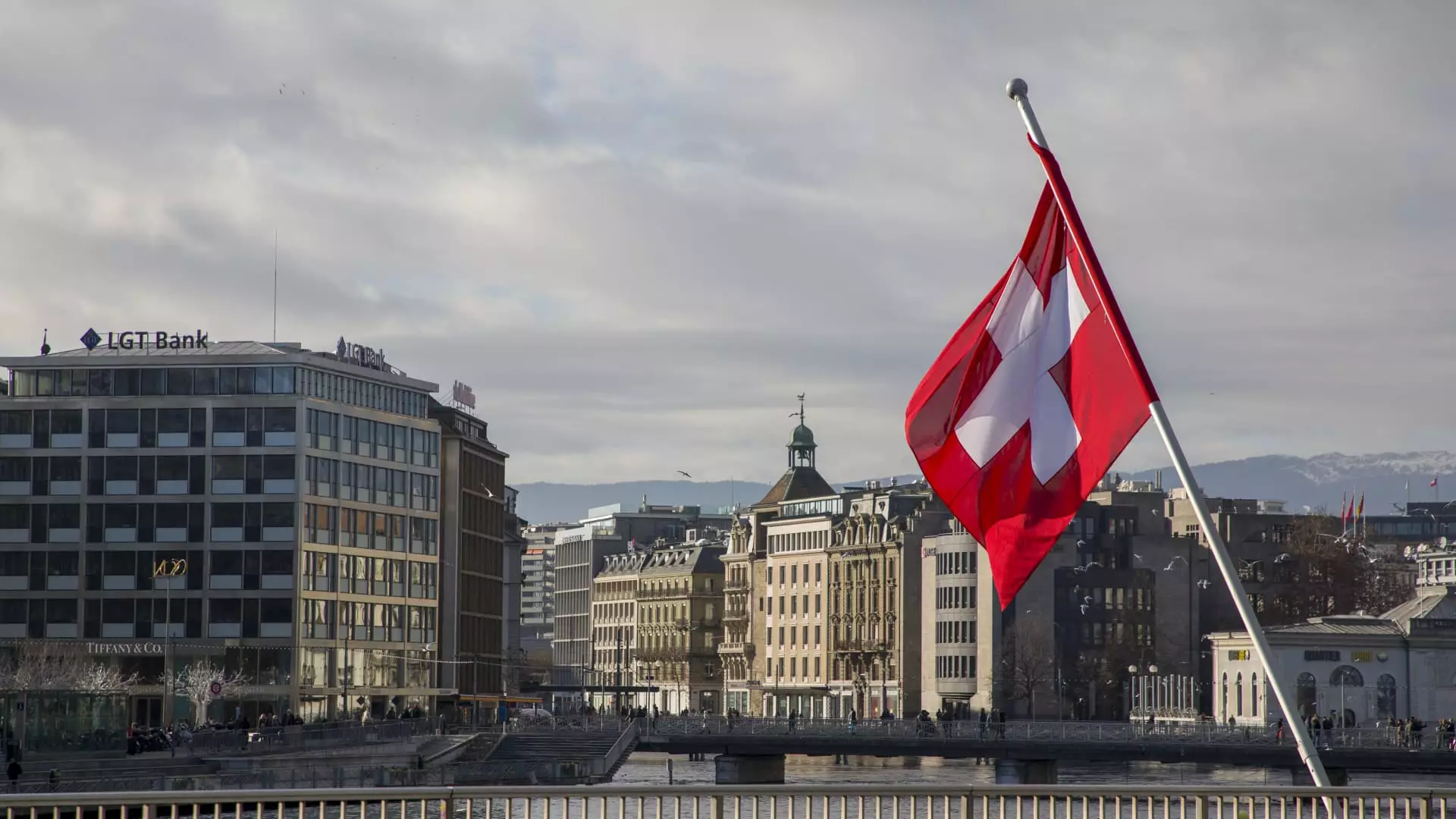In an astonishing turn of events, a growing number of affluent Americans are flocking to Swiss banks, marking what could be termed a de-Americanization of wealth. This trend is not merely a curiosity; it signals a shifting tide of sentiment among the privileged elite who perceive their domestic landscape as increasingly perilous. Swiss banks are experiencing a notable uptick in interest—from investment accounts to more exotic assets like physical gold. This isn’t just about banking; it’s a reflection of larger anxieties about economic stability and legal integrity in the U.S.
The motivations behind this surge are as diverse as the clients involved. Many affluent individuals are looking to safeguard their assets against potential declines in the U.S. dollar, fueled by the alarming trajectory of the national debt. To quote Pierre Gabris, a Swiss financial consultant, “It comes in waves.” The societal shifts reflected in this wave speak volumes about the general discontent among American elites. Barriers to comfortable living are rising, not falling, and many see Switzerland as a bastion of stability amid political turbulence.
A Disturbing Commentary on American Culture
The fact that wealthy Americans are now eyeing Swiss bank accounts with growing favor should alarm us all. It suggests a disillusionment with the core tenets of American financial security and governance. From the Obama administration to the turbulence under Trump, various political epochs appear to have propelled the affluent to seek alternatives outside their homeland. The underlying implication here is startling: a significant portion of the wealthy no longer believes in the long-term viability of investing within the United States.
Swiss banks offer not just a safe haven for capital but also an escape from what some perceive as a deteriorating rule of law. We live in polarizing times, where many no longer view the American system as a stable foundation for wealth management. As banks like Pictet and Vontobel prepare to welcome these investors, it is crucial to acknowledge that their eagerness to cut ties with local banking options is laden with implications about societal trust—and the profound unease that accompanies it.
The Politics of Wealth Preservation
Most troubling is the idea that Americans—especially the wealthy—are openly searching for “Plan Bs” in various forms, whether through acquiring second citizenships or purchasing property abroad. Such actions create a bifurcation that challenges the very fabric of democratic participation. The misconception that wealth can act as a shield against societal ills is profoundly misguided. This notion is eerily reminiscent of historical retreats from civic engagement, possibly foreshadowing a future where only the affluent feel the need to secure themselves against domestic discontent.
Opening a Swiss bank account may have once evoked images of tax evasion and secrecy, but in contemporary society, it has become an ostensibly legitimate option. This increasing normalization serves to normalize the detachment of wealth from community and accountability. As the rich clamber to protect their interests abroad, we should question what it says about us as a nation. Are we nurturing a healthy environment for the financial elite, or are we fueling the conditions that push them away?
We are left to ponder the critical implications: when the wealthy seek refuge abroad, does it signal a crisis of confidence in our institutions? As they chase stability in Switzerland, should we not also be concerned about the underlying fractures in our societal landscape? The wealthy individual’s retreat might, in effect, signify a dangerous disconnect, an abandonment of the ideals that once made America the land of opportunity for all.


Leave a Reply